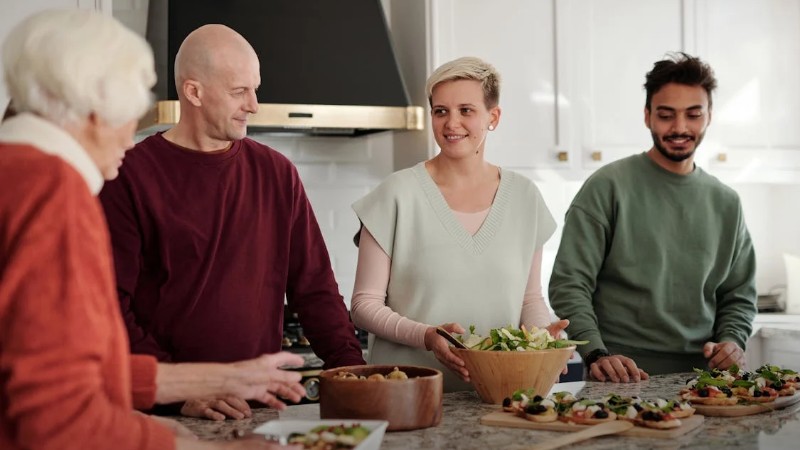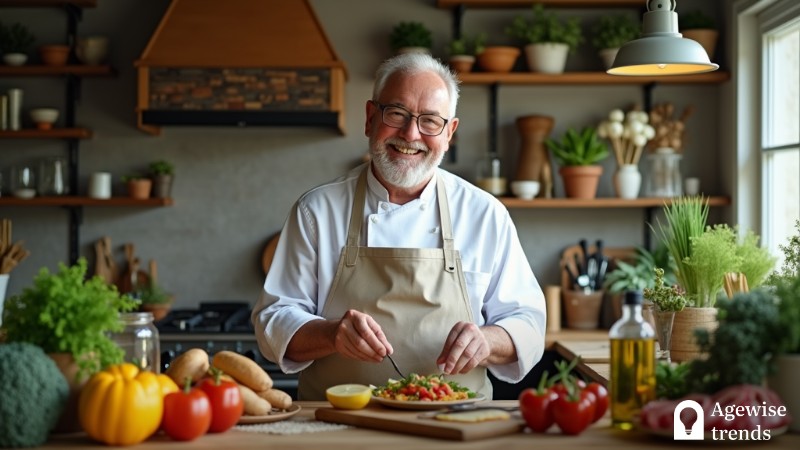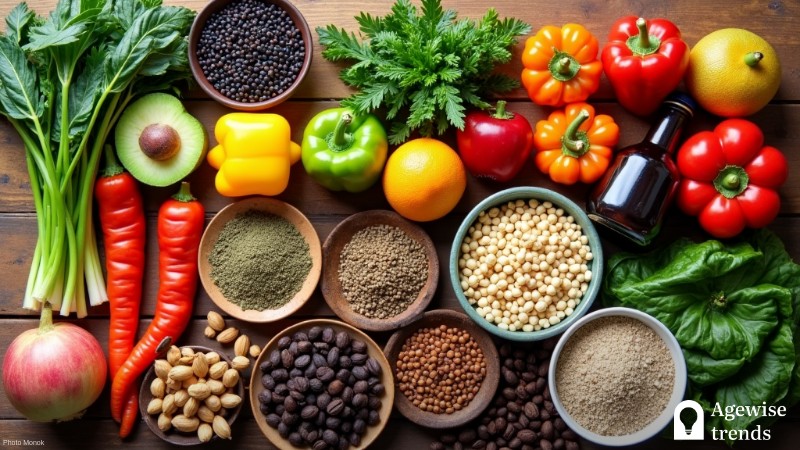Cooking together as a family is a fun and impactful way to boost health, particularly for seniors with chronic conditions such as diabetes and heart disease. Studies have proven that preparing meals together can significantly improve physical and mental well-being.
The advantages of family-style meal planning go well beyond nourishment. It provides valuable opportunities for improved nutrition, meaningful social connections, and emotional support.
By gathering in the kitchen, families not only create delicious meals but also strengthen their bonds and support each other’s health in tangible ways.
Key Takeaways
Cooking together as a family can significantly improve physical and mental well-being, particularly for seniors with chronic conditions.
- Family-style meal planning promotes balanced nutrition and portion control, essential components for managing issues such as diabetes.
- Gathering in the kitchen creates a strong sense of community, helping combat loneliness, reduce depression, and improve emotional balance among older adults.
- Cooking education empowers seniors to take control of their physical condition by teaching them practical meal prep skills and promoting healthy eating habits.
Benefits of family-style meal planning for seniors
As people enter their later years, their nutritional needs undergo significant changes. Maintaining energy levels and supporting overall wellness can become more complicated, particularly when managing ongoing medical conditions.
Family-style meal planning offers a solution by promoting balanced nutrition and portion control—two essential components for managing issues such as diabetes.
When older adults cook alongside family members, they engage in meaningful bonding and gain valuable insights into better food choices, leading to improved long-term health outcomes. This collaborative approach to meal preparation can genuinely make a difference in their well-being.
Cooking together offers more than nutritional benefits; it creates a strong sense of community. For older adults facing isolation, gathering for shared meal preparation provides a joyful social outlet that helps combat loneliness, reduce depression, and improve emotional balance.
Meals for overall senior wellness
Incorporating health-conscious ingredients into meals is essential for those in their later years. Simple recipes that feature ingredients like fish, fruits, and vegetables are perfect choices.
Dishes such as grilled salmon with roasted vegetables or a hearty lentil soup are not only easy to prepare but also packed with heart-healthy nutrients. Moreover, these meals require minimal effort and include ingredients that are often staples in most pantries.
Cooking classes and online resources offer valuable tools for building kitchen confidence. Step-by-step instructions make healthy cooking accessible to all skill levels, empowering the older generation to prepare nutritious meals independently.
Crafting nutritious recipes for seniors
As sensory abilities such as taste and smell naturally decline with age, meal planning can become increasingly challenging. Older adults can address these difficulties by incorporating herbs and spices to elevate the flavor of their dishes.
Additionally, adapting beloved family recipes to align with current nutritional needs offers a personalized approach to meal planning.
Seeking guidance from a registered dietitian specializing in geriatric nutrition can also prove invaluable. These professionals can assist in crafting meal plans tailored to specific health needs, ensuring that dietary choices support both physical and cognitive fitness.
Empowering seniors through cooking education
Education is crucial in helping older individuals make informed decisions about their well-being. With access to cooking classes or online platforms that teach essential meal prep skills, they gain the tools to take control of their physical condition.
These resources can be tailored to suit various learning styles, ensuring everyone can acquire the knowledge needed to prepare nutritious meals and confidently manage their overall health.
The DICE program, developed by Catherine McManus, is a prime example of how interactive cooking education can improve wellness outcomes.
DICE (Diabetes Inspired Culinary Education) is a community-based program that teaches participants, including seniors, practical cooking skills while promoting healthy eating and disease management.
Through family-style meal planning, seniors can develop sustainable habits that benefit their overall physical condition. This approach supports their health and fosters a sense of community and emotional resilience, creating a supportive environment for them to thrive.
By blending education with hands-on meal preparation, they are empowered to take control of their dietary choices in a way that’s both fun and practical.















